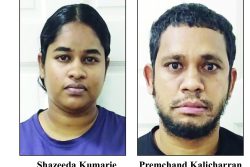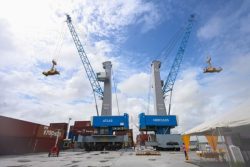TOKYO, (Reuters) – Japanese Prime Minister Shinzo Abe said yesterday he will work to regain public trust after his party suffered an historic defeat in an election in the nation’s capital, signalling trouble for the premier amid tumbling support rates.
The dismal showing for Abe’s Liberal Democratic Party (LDP) in Sunday’s Tokyo Metropolitan assembly election was a stinging rebuke for his 4-1/2-year-old administration, although on the surface it was a referendum on popular Governor Yuriko Koike’s year in office.
Koike’s novice Tokyo Citizens First party and its allies, including the LDP’s national-level coalition partner, the Komeito, took 79 seats in the 127-member chamber.
The LDP won a mere 23 seats, less than half its pre-election total and its worst-ever result in a Tokyo poll.
“I want to regain the people’s trust by unifying the party and … showing results,” Abe told reporters.
“It was a severe judgment suggesting (voters) thought the Abe administration was getting slack,” Abe said. “We must accept this firmly and seriously and make every effort to return to our original aspirations of when we regained power.”
Past Tokyo elections have been bellwethers for national trends. A 2009 Tokyo poll in which the LDP won just 38 seats was followed by its defeat in a general election that year, although this time no lower house poll need be held until late 2018.
Koike, a media-savvy ex-defence minister and former LDP member, took office a year ago as the first female governor in the capital, defying the local LDP chapter to run and promising to reform governance of a megacity with a population of 13.7 million and an economy bigger than the Netherlands’.
The LDP has been hit by a scandal over suspicions – denied by the premier – that Abe helped a friend’s business get favoured treatment.








